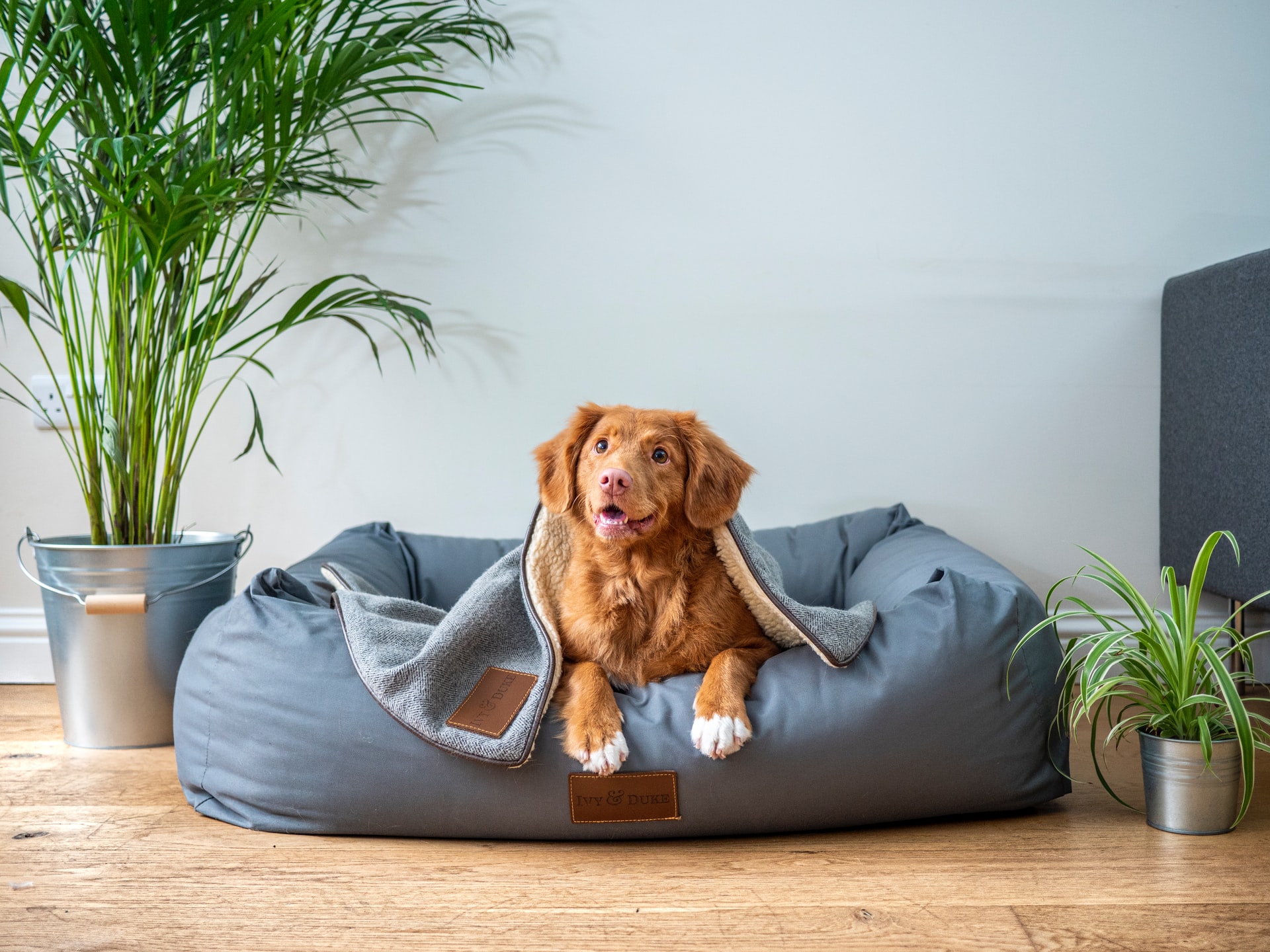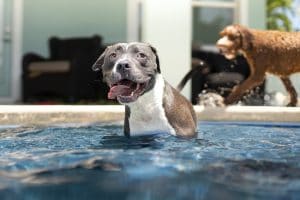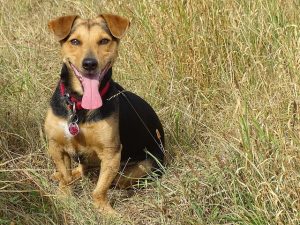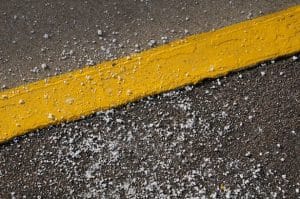Water intoxication in dogs is no joke. In fact, the issue needs a whole lot more visibility and attention online.
This happens when your dog has consumed too much water either by mouth or absorbed through the skin. It’s also called water poisoning, hyperhydration, overhydration and water toxaemia.
To be clear, water intoxication doesn’t refer to drinking dirty, poisonous or infected water. It’s a rare but plausible occurrence.
For example, unusual circumstances like extreme heat may lead to hyponatremia (low levels of sodium (salt)) complications and/or electrolyte imbalances that disturb a dog’s brain function. This would compel your mutt to drink too much water too fast.
How do I know if my dog has water intoxication? (Symptoms)
Water intoxication symptoms in dogs are often unidentifiable unless you’re specifically looking for them. Close observation is crucial near water sources as a safety measure. Here are some warning signs:
1. Vomiting and bloating
Once the effects of water intoxication take hold, your mutt’s body will retaliate by forcing the water out. A dog with a lot of water in its system may have vomit that appears clearer and wetter than usual.
Check for bloating in the stomach.
2. Lack of coordination
Excess water causes temporary or permanent neurological problems in dogs, such as disorientation. If your dog cannot coordinate their movements, you gotta check them out immediately. Start with gums and pupils.
3. Dilated pupils
An overhydrated pooch’s pupils appear noticeably larger, also called glazed eyes (see also ‘Is It Safe To Look Your Dog In The Eyes?‘).
4. Pink gums and excess drool
If your dog has started losing the colour of gums, its body is most likely overhydrated. The colour will go from the usual dark pink (or red) to light or somewhat pink.
Additionally, salivating and excessively drooling is often a symptom of a neurological problem in a canine. Having too large a volume of water can potentially impair the brain, manifesting in a dog that is salivating profusely or drooling.
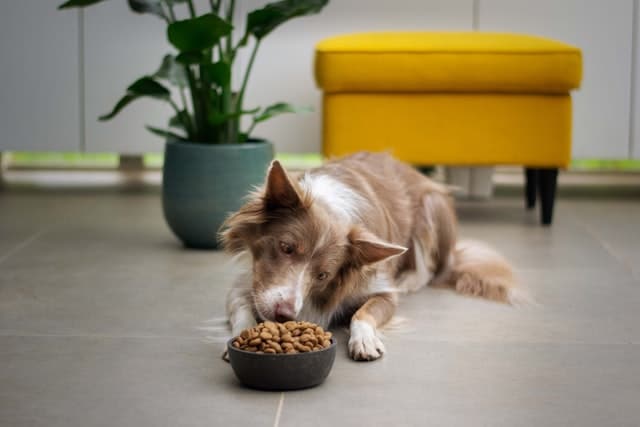
5. Nausea and Lethargy
Your doggo will appear lethargic or nauseated if they’re overhydrated due to the neurological imbalances in their body.
6. Collapse or Seizures
If left unchecked, the level of intoxication will rise. Nausea will grow into sudden collapses and/or seizures.
Medical attention should be sought immediately and immediately once your dog reaches this state.
A collapse might indicate that your dog’s body is in self-defence mode. But seizures are clear signs of early onset of serious neurological damage that may be irreversible if immediate actions are not taken.
Read More: What are guard hairs on dogs? Are they different from normal hair?
How do you reverse water intoxication in dogs?
Contact a veterinarian as soon as the symptoms manifest in a water intoxicated dog. A vet will likely administer drugs prescribed for pulmonary oedema such as Mannitol to decrease pressure in the brain and diuretics to hasten fluid removal.
The treatment will conclude with an IV administration to replenish the electrolytes in your doggo’s body. With luck, your dog will be back to health in no time.
Unfortunately, there’s an unlucky scenario too. Dogs either die or require euthanisation if the brain damage is severely irreversible.
Home Treatment for Water Intoxication in Dogs
A word of warning for the dog parents out there, water intoxication is RAPID in dogs. Think of home remedies as first aids for mild intoxications, not treatments. After these, you must contact a vet as soon as your mutt stabilises.
1. Cut off the water supply.
The first thing to do is immediately remove them from the water source.
2. Increase salt intake to soak up excess water.
Hyponatremia occurs when the salt levels in your body are dangerously low. If your dog isn’t too bad, give them a salty snack to hopefully counter the water in their body.
3. Administer diuretics.
Diuretics can cause canines to urinate more often. It’ll speed up the removal of excess fluids.
Note: Always seek medical attention from a vet before self-medicating your dog.
4. Warm them up to sweat the water out.
Take your dog to a warm area to try and encourage sweating. It’s not the most efficient but a good way to get rid of excess water from the body.
How to prevent water intoxication in dogs?
Fortunately, there are a few preventive measures that you could take to save your dog from water intoxication.
The most important one is to monitor them near water sources and outside.
1. Monitor their water intake.
Keep an eye on how often you need to replenish their water bowl to see if they’re overdoing it. Never give them a bigger water source than they require, just leave a bowl of water at home instead of a bucket.
That said, it’s best if they’re always hydrated. Dogs, like humans, will drink more water when extremely thirsty.
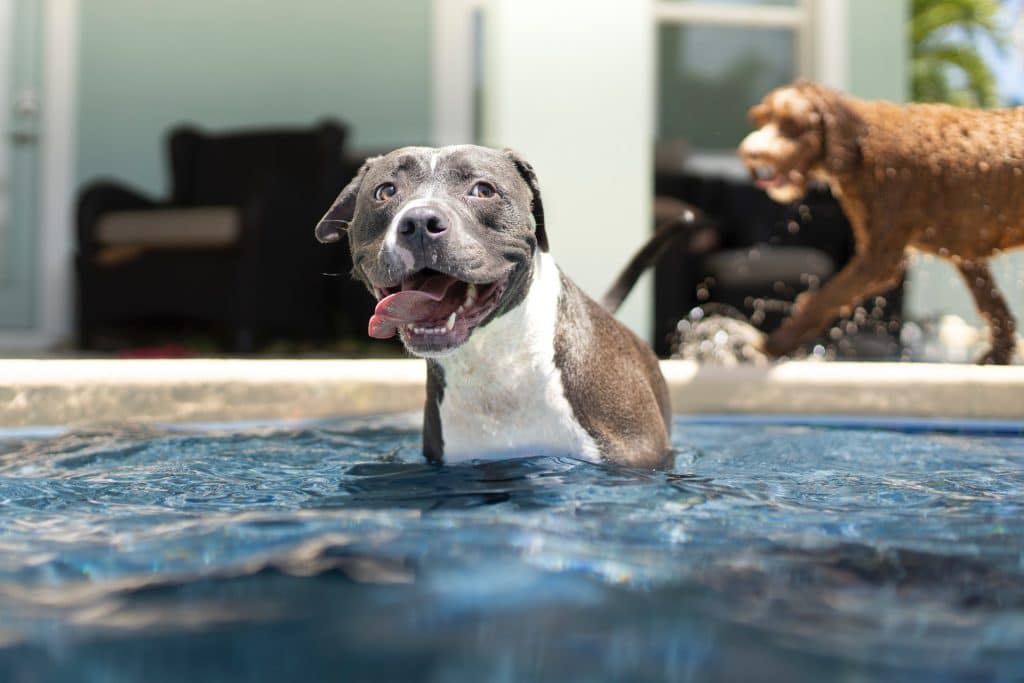
2. Monitor and limit playtime in the water.
Obsersve closely if your dogs love to swim or hang out near rivers and lakes. To keep the excess water out, ensure they’re not flapping around too much with an open mouth.
This is especially important if your dog keeps their head low when swimming. Additionally, don’t let the doggo hang around open sprinklers or bite water hoses.
3. Feed them salty snacks.
If your dog is playing in the water, keep them fed with salty snacks to avoid hyponatremia. Although, don’t leave the snacks when you go out so your dog doesn’t overdrink while they’re not being monitored.
Read More: Which human foods are toxic for your dog? And which are safe?
Which dogs are most at risk?
Speaking of preventive measures, how likely is your dog to suffer from water intoxication? While all dogs are susceptible to hyperhydration because let’s face it, these are overexcited creatures. Some are more likely than others.
1. Small dogs with low body mass.
Heavier dogs are more likely to get bloated, but smaller ones are more susceptible to water intoxication due to their body mass.
In fact, your dog doesn’t even have to be small in particular. Greyhound-like breeds, puppies, elderly dogs and sick dogs are more susceptible to water intoxication than others.
Speaking of Greyhounds, it’s a thumb rule that leaner bread is much more susceptible. Leaner breeds have a much faster acting metabolism that digests whatever your dog is quickly and absorbs water faster than bulkier dog breeds.
2. Dogs near a constant water source.
It shouldn’t be a surprise that our doggos LOVE to play in and around the water. Interestingly, water can be absorbed through the skin and mouth.
In short, extensive exposure to a water source (with direct contact) can lead to water intoxication.
Dogs can accidentally swallow too much water when jumping into open water after toys or while hunting animals. Water-loving breeds such as labradors should also be carefully supervised near water.
3. Dogs living in extreme heat.
Dogs who live in or experience periods of extreme heat are more likely to need to drink more and potentially drink too much if the heat is particularly bad and they’ve been unable to take any shelter.
Extreme weather and access to water are a bad combination, and the proper prevention is to avoid heat and direct sunlight altogether. Although in such conditions, dogs are more likely to drink too fast than too much.
4. Dogs with conditions such as polydipsia.
Suppose your dog suffers from a medical condition that forces them to drink more water all the time (such as polydipsia or “extreme thirstiness”). In that case, they’re more susceptible to accidental water intoxication and salt poisoning.
Contact a vet immediately if your dog drinks too much water too quickly in front of you.
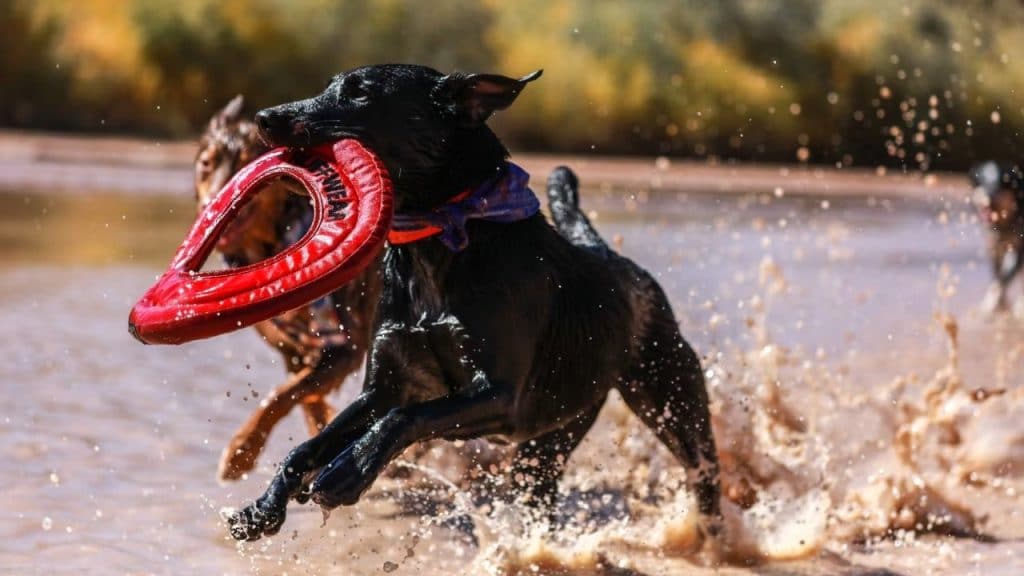
Frequently Asked Questions (FAQs)
1. Can a dog recover from water intoxication?
While dogs can most certainly die from water intoxication, recovery is possible if appropriate actions are taken immediately. However, in cases of harsh intoxication, permanent kidney damage is possible after survival, which will have lifelong effects on your dog.
2. How quickly does water intoxication happen in dogs?
Water intoxication can happen quickly in dogs – sometimes even less than 30 minutes. However, the symptoms usually don’t show up for the next few hours. Intoxication progresses even more rapidly after visible symptoms, especially in small dogs.
This is why dog owners need to be vigilant around their mutts. Small dogs can even die or suffer from permanent kidney damage after water intoxication.
3. Can a dog drink too much water too fast?
Like humans, dogs could accidentally go down the wrong way if they drink too much water too fast. And if it continues to build up, the pressure can result in pulmonary oedema, leading to various health issues.
4. How long does water intoxication last?
Dogs are water intoxicated for variable durations – depending on the breed, weight, temperature, amount of exercise afterwards and volume of water consumed. Mild intoxication lasts a few hours, and serious water intoxication lasts over 24 hours in dogs.
A serious one also warrants a potential overnight stay in the vet’s office.
5. Can a dog get bloated from drinking too much water?
While drinking too much water will not get a dog bloated, drinking water too fast certainly could. The chances of bloating depend on how fast your doctor ingests excess water. Dogs weighing more than 100 pounds are 20% more likely to get bloated.
6. Is it a problem if your dog gets too many fluids?
An excess of fluids can result in life-threatening problems such as pulmonary or interstitial oedema. It is caused by the fluid buildup in interstitial spaces from the tremendous pressure due to the weight of extra fluids.
7. Does salt help water intoxication in dogs?
Common salt helps treat mild water intoxication in dogs and diuretics and promotes excess sweating. However, too much salt can also result in salt poisoning, so it’s not a viable treatment for serious cases of water intoxication.
